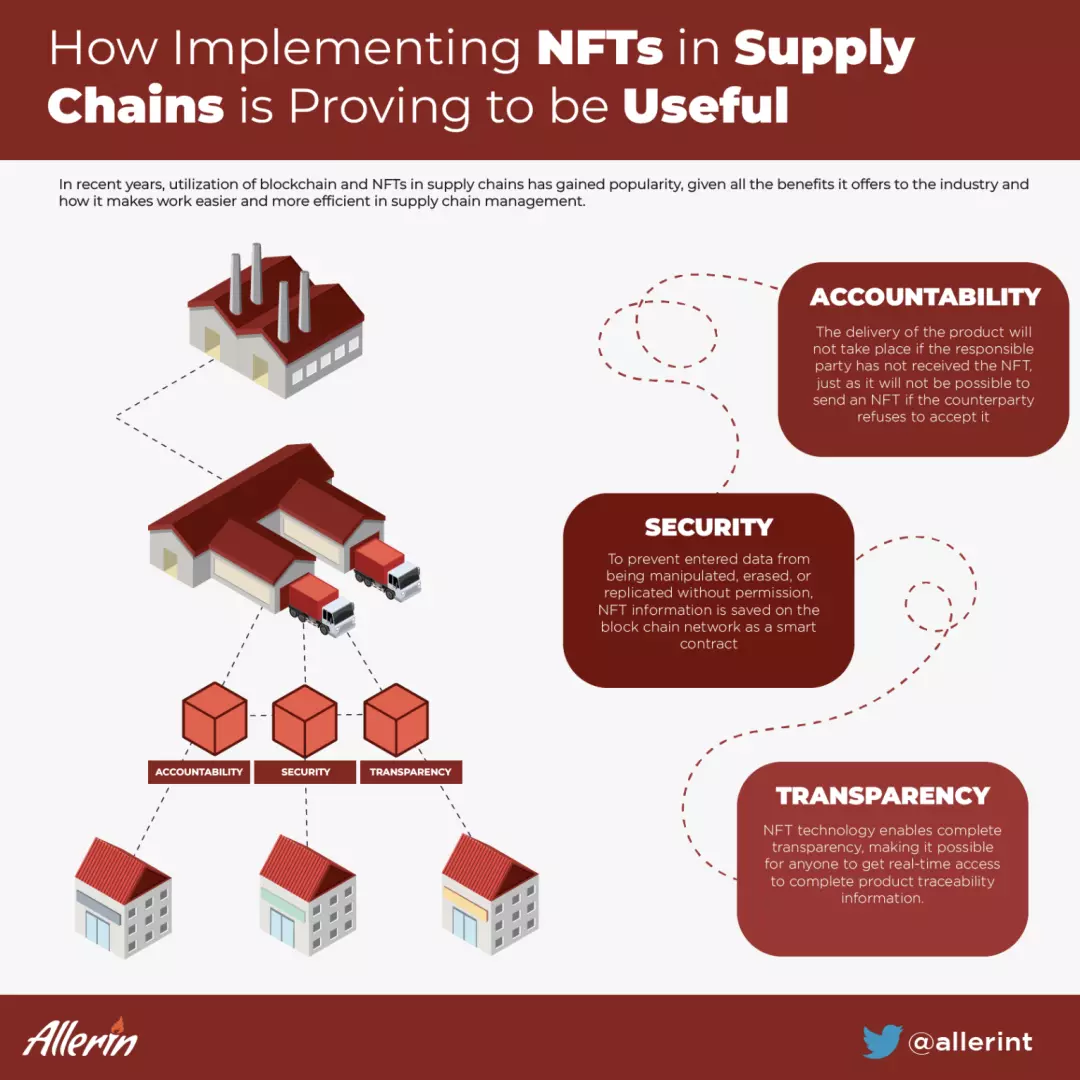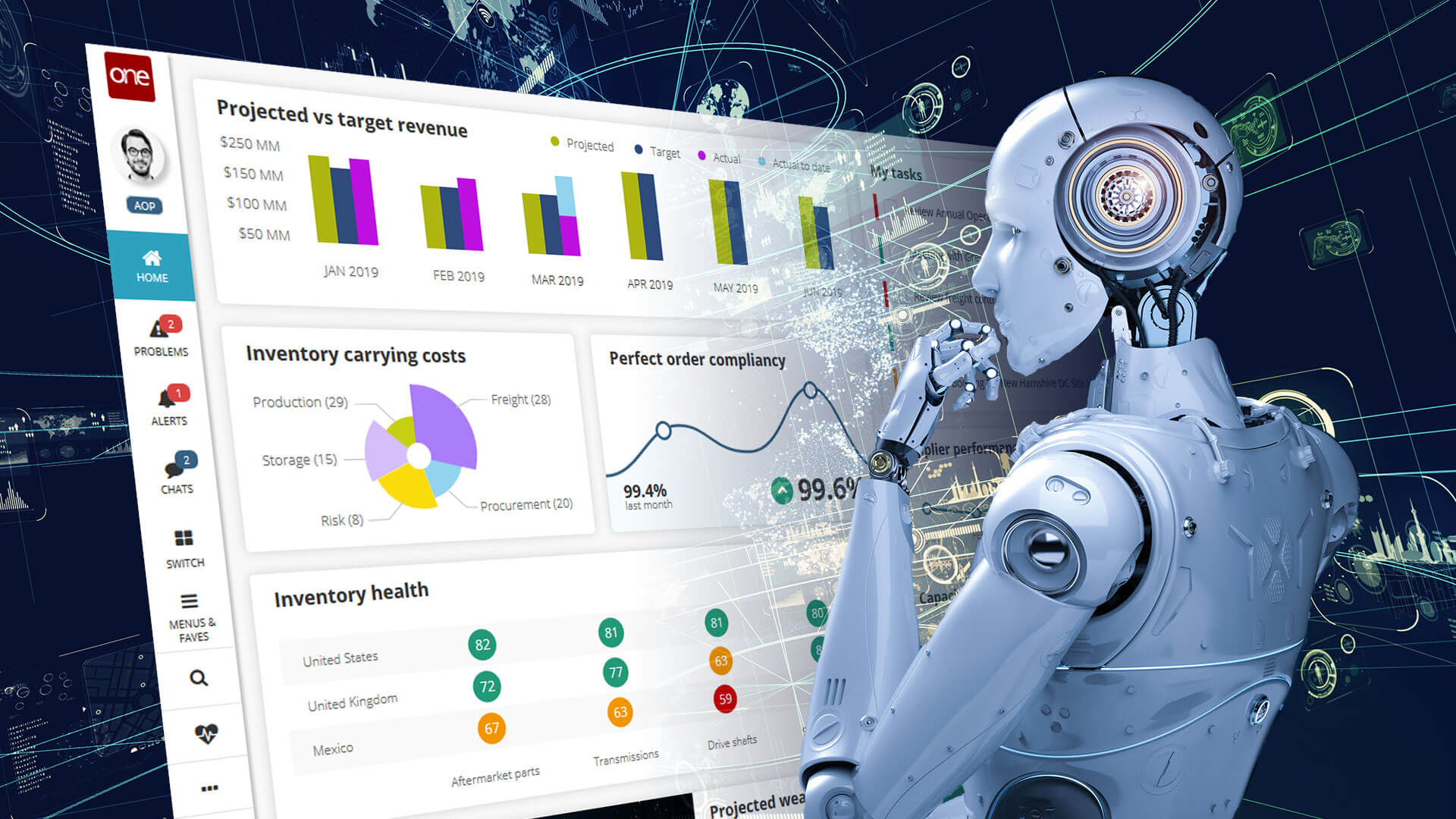In recent years, utilization of blockchain and NFTs in supply chains has gained popularity, given all the benefits it offers to the industry and how it makes work easier and more efficient in supply chain management.
For supply chain managers to remain competitive and maintain the most effective and modern processes, it is essential to be informed of emerging technology. An idea in particular, which optimizes how data is handled and safeguarded, is generating attention across international industries. Blockchain and non-fungible tokens (NFTs) are now gradually paving their way into the supply chain management industry.
How Implementing NFTs in Supply Chains is Proving to be Useful
NFT, a blockchain-related technology, has tremendous logistics potential because it can guarantee considerably more precise traceability control. NFTs are digital records that allow for the unique identification of objects and their owners as well as the inclusion of specific extra information. The numerous supply chain stakeholders' trust is enhanced because this information cannot be distorted. We now have access to the metadata for specific products, including information on their current owner, location, and attributes like weight, size, and certifications. As the item moves along the supply chain, the NFT, which is still kept in the blockchain network, receives updates with this information. It is possible to get a credible, thorough history of the product's overall journey, from its origin until the moment the items reach their destination. Basically, NFTs add value to the supply chain management system in three ways :
1. Accountability
NFTs enable us to identify the person in charge of a certain product at any particular point in time. Furthermore, the delivery of the product will not take place if the responsible party has not received the NFT, just as it will not be possible to send an NFT if the counterparty refuses to accept it.
2. Security
Information is sent securely among all parties involved in the supply chain. To prevent entered data from being manipulated, erased, or replicated without permission, NFT information is saved on the blockchain network as a smart contract.
3. Transparency
Knowing the logistical and manufacturing procedures the commodities have undergone, as well as where they have been and how long they have been there, is essential when working with perishable goods such as food, pharmaceuticals, chemicals, and/or pharmaceutical products. NFT technology enables complete transparency, making it possible for anyone to get real-time access to complete product traceability information.
How Blockchain Is Beneficial for the Supply Chain
Companies can now track all kinds of transactions more securely and transparently, thanks to blockchain technology. The effect on the supply chain function could be enormous. Diamond tracking, food safety, oil supply chain and pharma supply chain are some of the main use cases of blockchain technology in logistics. The various benefits of blockchain for supply chain management are as follows:

Increasing Traceability and Visibility
Businesses can use blockchain to track a product's history from its point of origin to its present location. A secure record of every transaction involving a product is created, providing a complete history from production through a sale.
Supply chain networks can be limited to one-up/one-down visibility. Blockchain supply chain solutions allow authorized parties better visibility across all supply chain activities, owing to distributed ledger technology, which offers a shared, single version of the truth. Reducing Costs
The expense of moving goods can be minimized since blockchain enables real-time tracking of a product across the supply chain without the use of intermediaries. By eliminating these intermediaries, unnecessary costs, frauds, as well as the possibility of product duplication, can be reduced. Payments can be made directly amongst the parties of the supply chain using cryptocurrency, as opposed to relying on financial intermediaries like banks.
By integrating with and enhancing electronic data interchange (EDI) systems, blockchain technology could potentially assist various businesses in making enormous savings and minimizing inefficiencies. This will prove to be an incremental step in the supply chain once business partners begin exchanging papers digitally instead of using paper-based processes. Helping Build Trust
For a product to stay credible and authentic, parties engaged in the supply chain must have mutual trust. Each stakeholder may access any old or new record, thanks to the timestamped data retained consistently in a blockchain-based supply chain solution, which enhances trust in the system. Offering Reliability
A shared blockchain ledger provides a reliable and impermeable audit record of the transfer of information, stock, and revenue within a supply chain. Using a shared blockchain, businesses may synchronize logistical data, track shipments, and automate transactions. While doing so, they can transmit only the most relevant data without significantly altering their existing systems. Also, businesses can locate the source of fraud wherever it occurs with the help of comprehensive records.
For any business to succeed, innovation should be a forever on-going process. Integrating cutting-edge technologies in your organization is bound to give you an upper hand over your competitors. Utilization of technologies like blockchain and NFTs in supply chain management is expected to bring a revolution in the logistics industry like never before and its adoption at the earliest is what can take your supply chain business to another level.




Leave your comments
Post comment as a guest